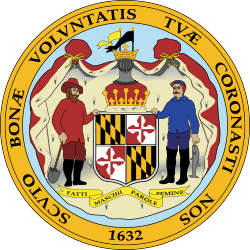| |||||||||||||||||
| |||||||||||||||||
 County results Hicks: 50–60% 60–70% Groome: 50–60% 60–70% 70–80% | |||||||||||||||||
| |||||||||||||||||
| Elections in Maryland |
|---|
 |
The 1857 Maryland gubernatorial election was held on November 4, 1857, in order to elect the Governor of Maryland. American Party nominee and former member of the Maryland House of Delegates Thomas Holliday Hicks defeated Democratic nominee and former Secretary of State of Maryland John Charles Groome. [1] [2]

